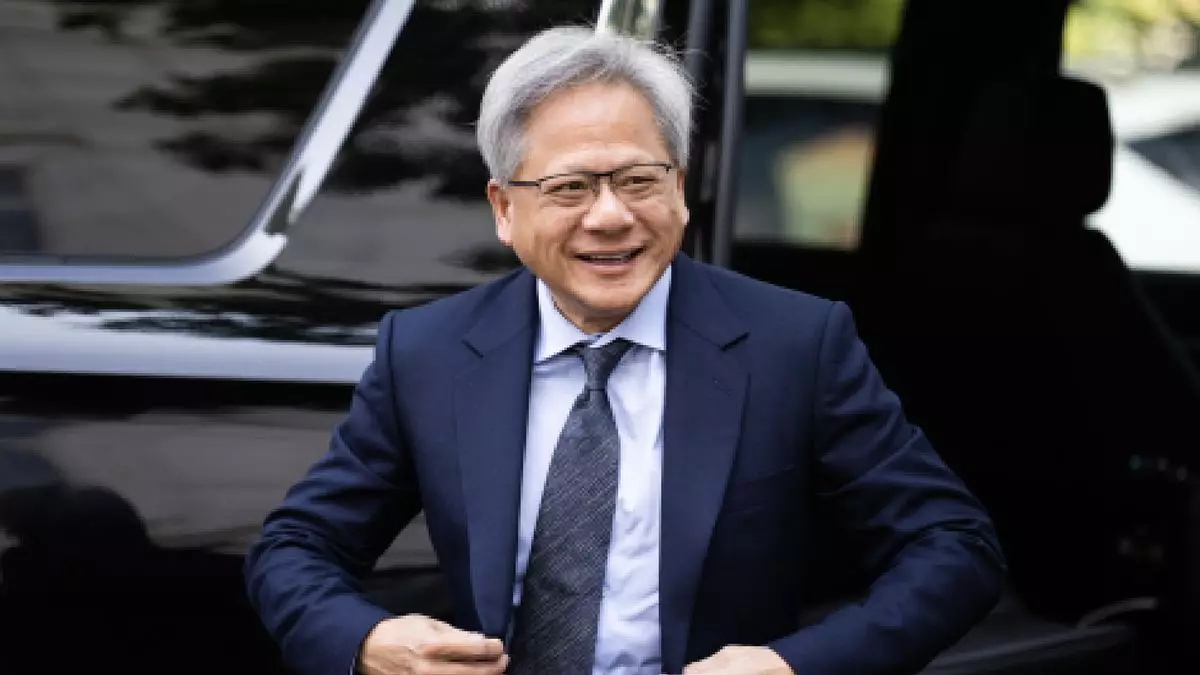In the dynamic realm of technology, stories of perseverance and unexpected beginnings often illuminate the incredible paths individuals take to achieve monumental success. One such fascinating narrative involves Jensen Huang, the CEO of Nvidia, a company that has not only pushed the boundaries of innovation but also significantly influenced the tech landscape worldwide. Long before he became a titan of artificial intelligence and graphics processing, Huang was just a young boy in the Northwest, carving his path through the sport of table tennis.
In a nostalgic anecdote from 1978, a letter to Sports Illustrated penned by Lou Bochenski—a table tennis club owner—shines light on a 14-year-old Huang, whom Bochenski labeled “perhaps the most promising junior ever to play table tennis in the Northwest.” This recognition underscores not only Huang’s talent at such a young age but also the aspirations set before him. Bochenski’s letter highlighted Huang’s determination as he balanced academics and sports through hard work, earning money by scrubbing floors at a local table tennis venue aptly named Paddle Palace. This image of a young Huang, striving toward a future in a sport he was passionately engaged in, sets the stage for a discussion about ambition and the varied paths success can take.
While his early commitment to table tennis paints him as an eager competitor, it also introduces the pivotal question of whether these aspirations in sport were ultimately a diversion from what would become his true calling. Would the world have seen a champion in the realm of ping pong had Huang followed a different trajectory? Or was that chapter merely a stepping stone toward a more significant, albeit unexpected, destiny in technology?
Eventually, Huang shifted his focus from the ping pong table to the world of computing. It was a transition that few could have predicted, but in retrospect, it appears almost poetically serendipitous. The skills he honed through table tennis—strategic thinking, discipline, and a competitive spirit—translated seamlessly into his later endeavors as an entrepreneur and leader in the tech industry. By founding Nvidia in 1993, Huang entered a sector promising multitudes of growth, fueled by a burgeoning interest in graphics and processing power.
As Nvidia evolved, Huang’s vision transformed the company from a manufacturer of graphics cards to a powerhouse of artificial intelligence. This pivot not only increased Nvidia’s market value into the trillions but redefined the technological landscape across multiple sectors, positioning Huang as a pivotal figure in modern innovation. His ability to foresee the intersection of graphics processing with AI showcases a relentless desire to push boundaries that might have stemmed from that same hunger to excel he exhibited in his younger years.
Huang’s story raises essential dialogues about ambition and identity. His childhood dream of becoming a table tennis champion stands in stark juxtaposition to his achievements in technology. It’s intriguing to ponder whether he reflects upon those early aspirations with a sense of nostalgia or views them as a phase that ultimately redirected him to a greater destiny. What does ambition mean when pursued in different arenas? Is it possible that the qualities that made Huang a promising athlete helped mold him into an innovative leader today?
In his recent book, *The Nvidia Way: Jensen Huang and the Making of a Tech Giant*, author Tae Kim explores these facets of Huang’s life, from humble beginnings serving tables at Denny’s to cleaning floors at a table tennis club and eventually leading a tech revolution. It’s a multifaceted portrayal of a leader whose early experiences continued to shape his values and approach to business, which remains ingrained in Nvidia’s ethos.
Jensen Huang’s journey from the court to the corporate powerhouse illustrates the unpredictable nature of ambition. His early encounters with sports and hard work fostered not just a competitive spirit but a robust work ethic that proved essential in an industry characterized by rapid evolution and relentless competition. Whether Huang reflects on his youthful dreams as a table tennis champion or savors the triumphs of being a technology visionary, it is undoubtedly a reminder that success often branches into unforeseen paths—paths that can transcend initial ambitions and culminate in incredible achievements. Through Huang’s unique story, we learn that every experience, regardless of its nature, contributes to the intricate tapestry of one’s journey toward greatness.


Leave a Reply